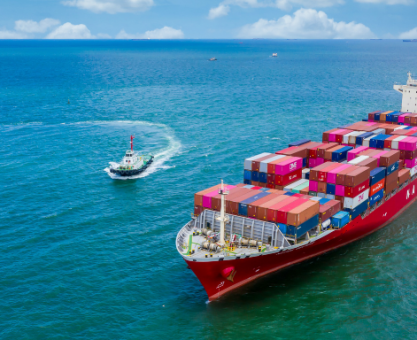Executive Summary
-
Sanctions can inadvertently disrupt global supply chains, affecting industries worldwide.
-
Key markets, including technology, energy, and agriculture, often face the brunt of these disruptions.
-
Understanding the ripple effects of sanctions can help businesses navigate geopolitical risks.
-
Strategic planning and diversification can mitigate some negative impacts on supply chains.
Introduction
In an interconnected global economy, sanctions have become a powerful tool for governments aiming to influence international behavior. However, these economic measures can also lead to significant disruptions across global supply chains. For investors, founders, and corporate leaders, it is crucial to understand the broader implications of sanctions beyond their immediate political objectives. This article explores the unintended consequences of sanctions on global supply chains and offers insights into managing these challenges effectively.
Definitions / Context
Sanctions are restrictions imposed by one country or a group of countries on another, typically to exert political pressure or influence behavior. These can range from trade embargoes to financial restrictions, affecting a nation’s ability to participate in the global economy. Recognizing the scope and intent of sanctions is critical for businesses that operate internationally and rely on cross-border supply chains.
Benefits / Pros
-
Political Leverage: Sanctions can be instrumental in achieving foreign policy objectives without resorting to military action.
-
Signaling Mechanism: They serve as a public statement against actions deemed unacceptable by the international community.
-
Economic Pressure: By restricting access to international markets, sanctions can pressure governments to alter their policies.
Risks / Cons / Challenges
-
Supply Chain Disruptions: Sanctions can block access to essential materials, leading to production delays and increased costs.
-
Market Volatility: Sudden changes in trade policies can lead to instability in global markets, affecting stock prices and investor sentiment.
-
Compliance Costs: Companies must navigate complex legal environments to ensure compliance, sometimes requiring significant resources.
-
Unintended Economic Impact: Non-target countries may suffer collateral damage, particularly when involved in multi-national supply chains.
Step-by-Step Process
How to Mitigate Sanction Risks in Supply Chains:
-
Assess Exposure: Identify key suppliers and markets that might be affected by sanctions.
-
Diversify Suppliers: Establish relationships with alternative suppliers in different regions.
-
Enhance Compliance Monitoring: Implement robust compliance programs to navigate legal complexities.
-
Invest in Technology: Use supply chain management software to track and predict potential disruptions.
-
Develop Contingency Plans: Prepare for potential disruptions with strategic reserves or alternative logistics plans.
A mid-sized European tech company faced severe disruptions when sanctions were imposed on a major semiconductor supplier based in Asia. Their production timelines were thrown into disarray due to lack of critical components. Instead of waiting for the situation to resolve, the company swiftly diversified its supplier network across Southeast Asia and Eastern Europe. Additionally, it invested in AI-powered compliance tools to monitor ongoing geopolitical developments. As a result, it not only resumed full production within four months but also emerged more resilient against future disruptions.
— European Tech Firm’s Sanction Resilience Strategy
Expert Tips / Strategic Insights
-
Epiidosis Recommends: Regularly updating risk assessments and maintaining open communication with suppliers to anticipate and manage potential disruptions.
-
Strategic Partnerships: Form alliances with local companies in unaffected regions to maintain operational continuity.
-
Regulatory Updates: Stay informed of evolving international trade policies and sanction lists to adapt supply chain strategies promptly.
Tools / Resources / Calculators
-
Sanction Risk Assessment Tool – Evaluate your company’s exposure to global sanctions.
-
Global Supply Chain Management Software – Tools like SAP Integrated Business Planning and Oracle SCM Cloud can help optimize and monitor logistics.
-
International Trade Compliance Resources – Platforms such as LexisNexis, Thomson Reuters, and the U.S. Treasury’s OFAC site help track and interpret sanction rules.
Conclusion
Sanctions, while primarily political tools, have far-reaching effects on global supply chains. Understanding these impacts allows businesses to develop strategies that mitigate risks and capitalize on opportunities arising from geopolitical shifts. By staying informed, leveraging technology, and planning strategically, companies can navigate the complexities of international trade more effectively.






















